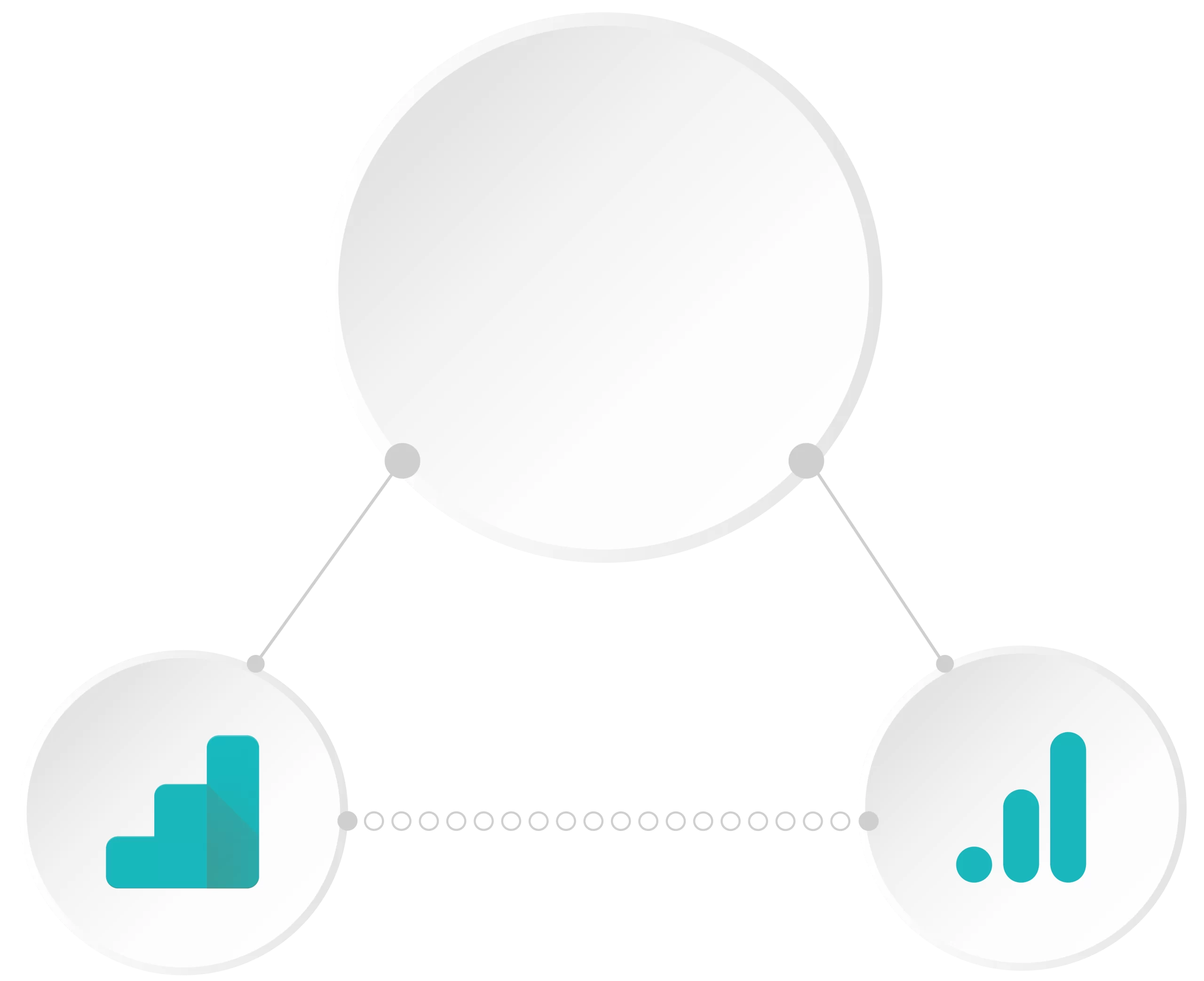Public Sector Organizations
Federal, Provincial and Municipal Governments & Ministries
Discover Google Analytics 4 (GA4) for seamless data management. The latest Google Analytics iteration, GA4, provides varied reports and features compared to Universal Analytics. It spans websites, apps, and integrates both for enhanced digital marketing, with future plans for advanced machine learning to enhance data completeness and campaign insights.
Get Started
Find out how we can help your business grow
The Importance of Analytics For The Public Sector
Confidentiality
Public sector websites are responsible for protecting citizens‘ privacy and personal information whenever citizens interact with the websites.
Audit & History
Historical data allows organizations to detect potential performance issues before they impact end-users. Regular Google Analytics 4 (GA4) audits can identify any potential problems before they happen.
Measurement & Metrics
Advertience recommends some of the following considerations for website metrics:
- Completions rate of intended task
- Ease of getting information
- Timeliness of getting the information
- Does the information meet and/or exceed expectations
- Relevance and usefulness of the information
Content Management System & Google Tag Manager
Google Tag Manager works alongside with website content management systems to help make website tag management simple with tools and solutions that allow organizations to deploy and edit tags in one place.
Turnkey Solution
Advertience has the expertise and capabilities to provide complete turnkey solutions that meet public sector specific data needs.
Training
Advertience Google Analytics 4 (GA4) training program helps organizations uncover business critical information about your website visitors and optimize your website while mitigating potential problems.
Ongoing Optimizations
Ongoing optimization of Google Analytics 4 (GA4) helps organizations harness the power of data by focusing on accuracy and integrity. Data integrity is fundamental to reliable performance reporting and reefers to the accuracy, consistency and completeness of data.
Data Continuity Impacts – UA to GA4 2023
01
History
All historical data in Universal Analytics will no longer be accessible post July 1st, 2023.
02
Continuity
There is no ability to connect the dots or compare data between Universal Analytics and Google Analytics 4 (GA4) directly or via a visual comparison. Google Analytics 4 (GA4) limits the data retention period to 14 months compared to unlimited in Universal Analytics.
03
Familiarity
Google Analytics 4 (GA4) introduces new nomenclature descriptions as well as visual cues for looking at the data.
04
Channel Grouping
The ability to define a custom channel grouping no longer exists. Google will now dictate how channel grouping is defined and will only update it once per year based upon user feedback.
05
Missed Data
Missed data due to configuration. Google Analytics 4 (GA4) differentiates from Universal Analytics is that will not automatically be captured as it previously was. Going forward all tags on a site must be duplicated to ensure they associate with the new Google Analytics 4 (GA4).

Advertience
Solution
Google Analytics Universal
Google Analytics 4
Universal Analytics to Google Analytics 4 Data Continuity Solution
Effective July 1st, 2023 Universal Analytics, also known as Google Analytics, will enter its end of life process. The sunsetting of Universal Analytics will result in the loss of all historical data previously gathered from a website. As a solution to this event, Advertience introduces a proprietary Analytics Solution that will retain and align all historical Universal Analytics data with new Google Analytics 4 data to provide clients a holistic view of website activity and performance devoid of data retention limitations.
Get Started
Find Out How We Can Help Your Business Grow
Key Benefit
Ensure data continuity post July 1st, 2023 and a seamless transition from Universal Analytics to Google Analytics 4 (GA4).
Frequently asked questions
Google Analytics 4 is an event-based data model. This model focuses on collecting all hits as events compared to Universal Analytics which had different hit types for different data points (pages, events, transactions, scroll etc).
Cross Domain tracking remains unchanged between versions and is still available in Google Analytics 4. Cross domain tracking is configured in Google Tag Manager.
There are no hit limitations in GA4. You can collect as many hits as you like within the limitation now on the number of events you can collect. Universal Analytics formerly had 10 million hits per month per property, 200,000 hits per user per day and 500 hits per session.
Initially, Universal Analytics allows you to set the session limit from 1 minute to 4 hours; but GA4 now allows session timeout to 7 hours and 55 minutes. (Both Universal Analytics and GA4 have their default timeout session set to 30 minutes).
Google analytics 4 has said goodbye to reporting views. This is a huge change from Universal Analytics, which provided the ability to create views from a single property and filter them to provide different views on the dataset.
In GA4, “Conversions” are the replacement for Goals but unlike Universal Analytics, they can only be set up for events.
No, GA4 no longer provides an option to define Custom Channel Groupings. Here is a list of the mandated Channel Grouping definitions, set by Google. Default Channel Groupings (GA4).
No, you can not. The only way to update the Default Channel Groupings for Google Analytics is to email googleanalytics-channelgrouprequests@google.com. Google have stated they will review these requests at least once per year.
Yes, until July 1, 2023. After that, If you set up a GA4 property with a web data stream, you will have a new measurement ID beginning with the character “G”.
Unfortunately, it is impossible to transfer data from Universal Analytics to GA4. In order to ensure data continuity, we advise you to speak to (advertience) for an alternative solution.
Yes, you can. Google Tag Manager is not going anywhere for now and will still remain available for tag deployment as it has been for Universal Analytics.
In Universal Analytics, the default data retention period is 26 months but you had the option to set it to “Never Expire”. Google Analytics 4 mandates the data retention to 14 months with no option of extension.
No, this would have to be manually set up as new events, in order to see any data or traffic in GA4. advertience recommends to set up dual tracking for both Universal Analytics and Google Analytics 4 in Google Tag Manager until July 1, 2023. (After July 1, 2023, it is strongly recommended to audit your Google Tag Manager to ensure the removal of the former(UA) tags).
Yes, you can set up Ecommerce tracking for GA4, however it involves the use of parameters that have been preset by Google already. This is different from the Ecommerce tracking for Universal Analytics.

